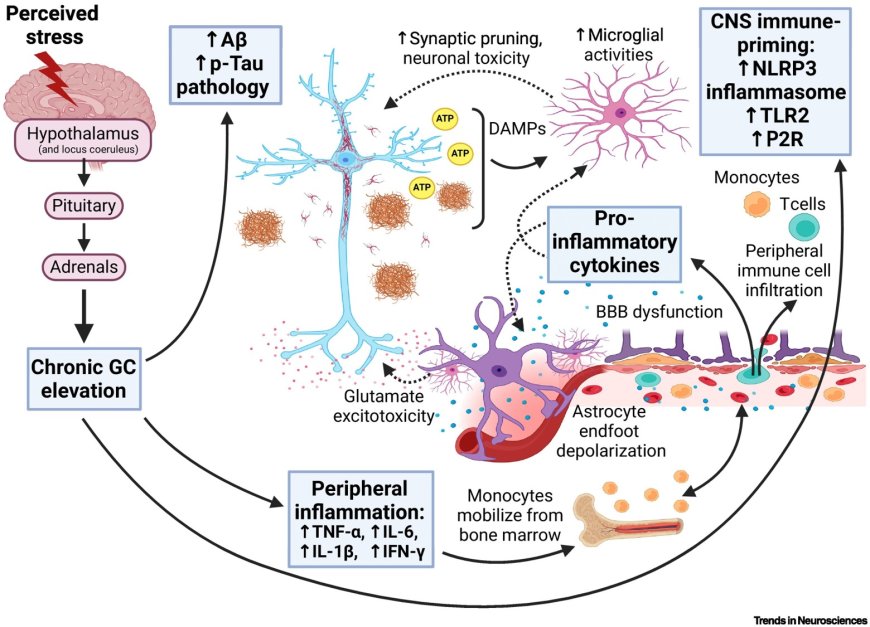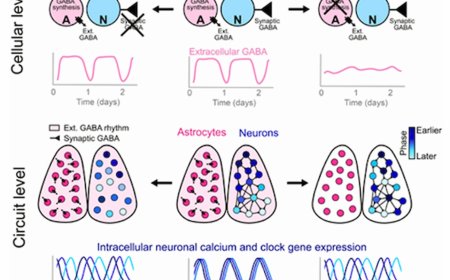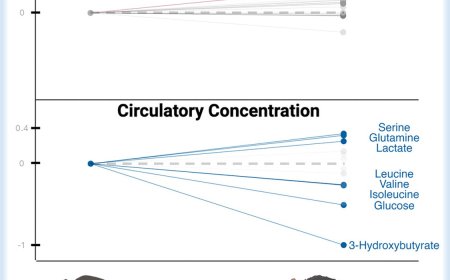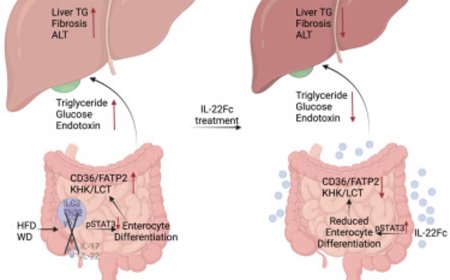Chronic stress and glucocorticoids in Alzheimer's disease pathogenesis

Chronic stress and glucocorticoids (GCs, the stress hormones of the body) are implicated in the tau, amyloid β (Aβ), and neuroinflammatory pathology that is characteristic of Alzheimer's disease.
Stress and GCs activate kinases and inhibit proteostasis mechanisms, thus driving tau hyperphosphorylation, aggregation, and secretion/spreading through the brain. Stress and GCs promote Aβ pathology by increasing the expression and amyloidogenic processing of amyloid precursor protein (APP) and by impairing APP and Aβ clearance mechanisms.
Stress and GCs stimulate neuroinflammation through upregulation of the inflammasome and damage-associated molecular pattern (DAMP) receptors, thereby promoting the secretion of proinflammatory cytokines.
Stress and GCs induce aberrant glial cell functioning, leading to over-pruning of synapses, glutamate excitotoxicity, and decreased integrity of the blood–brain barrier (BBB) and glymphatic clearance systems.
https://www.cell.com/trends/neurosciences/fulltext/S0166-2236(24)00172-3













